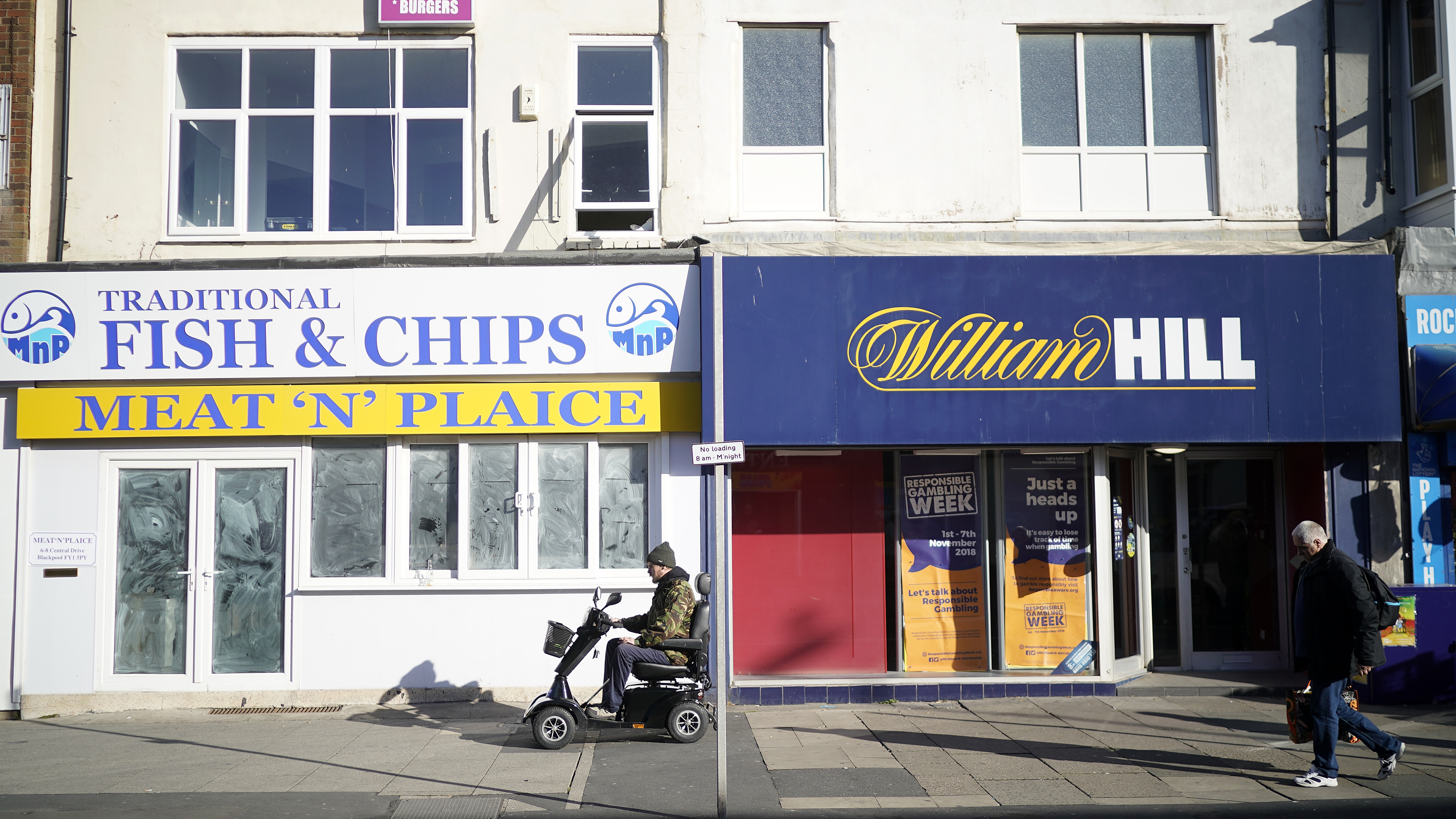Divided Britain: health and income gap larger than any other wealthy country
Some of the UK regions are worse off than Turkey, Romania and Poland

A free daily email with the biggest news stories of the day – and the best features from TheWeek.com
You are now subscribed
Your newsletter sign-up was successful
Britain’s regional differences are greater than those of any developed country in the world, a study has found.
Research by the IPPR North think-tank found that parts of the north of England have higher mortality rates than areas of Turkey, Romania and Poland.
What did the report find?
The Week
Escape your echo chamber. Get the facts behind the news, plus analysis from multiple perspectives.

Sign up for The Week's Free Newsletters
From our morning news briefing to a weekly Good News Newsletter, get the best of The Week delivered directly to your inbox.
From our morning news briefing to a weekly Good News Newsletter, get the best of The Week delivered directly to your inbox.
The UK was found to be more unequal than comparable countries when it comes to health, jobs, productivity and disposable income.
In wealthier parts of London, disposable income was shown to be £48,000 higher per person than in areas of the north, says The Times.
Luke Raikes, author of the report, said: “It is no surprise that people across the country feel so disempowered. Both political and economic power are hoarded by a handful of people in London and the south-east and this has damaged all parts of the country, from Newcastle to Newham.”
The UK was found to be the most regionally divided country of its level of development for productivity, and has not improved for a decade.
A free daily email with the biggest news stories of the day – and the best features from TheWeek.com
How does Britain compare?
Mortality rates in Blackpool, Manchester and Hull were found to be worse than those in the Turkish cities of Tunceli, Mardin and Mugla, the Romanian region of Valcea, and the cities of Krakow and Wroclaw in Poland, says The Guardian.
For productivity, the only countries more regionally unequal than the UK are predominantly eastern European economies that are far smaller.
On disposable income, the UK was found to be the most regionally divided of any country of its size and wealth.
What causes the regional divide?
The IPPR says that while the north of England has an economy larger than that of most EU countries, it is held back by Whitehall. The think-tank describes Britain as “the most centralised country of its size in the developed world”.
The report says that that 95p in every £1 paid in tax goes straight to Whitehall, compared with 69p in Germany.
And the lack of money raised locally could be part of the problem – local government spending on economic affairs is just half of what is spent regionally in France and Germany.
The interim director of IPPR North, Arianna Giovannini, said 2019 had “exposed our country’s regional divides” and that economic uncertainty over Brexit had spread to every corner of the UK.
“Devolution must be the way forward for the country, and all areas need substantial power and funding,” said Giovannini. “The next government must lead a devolution parliament – an unprecedented and irreversible shift of power – so that England’s regions, towns and cities can work together to bridge our regional divides.”
-
 The environmental cost of GLP-1s
The environmental cost of GLP-1sThe explainer Producing the drugs is a dirty process
-
 Greenland’s capital becomes ground zero for the country’s diplomatic straits
Greenland’s capital becomes ground zero for the country’s diplomatic straitsIN THE SPOTLIGHT A flurry of new consular activity in Nuuk shows how important Greenland has become to Europeans’ anxiety about American imperialism
-
 ‘This is something that happens all too often’
‘This is something that happens all too often’Instant Opinion Opinion, comment and editorials of the day
-
 How corrupt is the UK?
How corrupt is the UK?The Explainer Decline in standards ‘risks becoming a defining feature of our political culture’ as Britain falls to lowest ever score on global index
-
 The high street: Britain’s next political battleground?
The high street: Britain’s next political battleground?In the Spotlight Mass closure of shops and influx of organised crime are fuelling voter anger, and offer an opening for Reform UK
-
 Is a Reform-Tory pact becoming more likely?
Is a Reform-Tory pact becoming more likely?Today’s Big Question Nigel Farage’s party is ahead in the polls but still falls well short of a Commons majority, while Conservatives are still losing MPs to Reform
-
 Taking the low road: why the SNP is still standing strong
Taking the low road: why the SNP is still standing strongTalking Point Party is on track for a fifth consecutive victory in May’s Holyrood election, despite controversies and plummeting support
-
 What difference will the 'historic' UK-Germany treaty make?
What difference will the 'historic' UK-Germany treaty make?Today's Big Question Europe's two biggest economies sign first treaty since WWII, underscoring 'triangle alliance' with France amid growing Russian threat and US distance
-
 Is the G7 still relevant?
Is the G7 still relevant?Talking Point Donald Trump's early departure cast a shadow over this week's meeting of the world's major democracies
-
 Angela Rayner: Labour's next leader?
Angela Rayner: Labour's next leader?Today's Big Question A leaked memo has sparked speculation that the deputy PM is positioning herself as the left-of-centre alternative to Keir Starmer
-
 Is Starmer's plan to send migrants overseas Rwanda 2.0?
Is Starmer's plan to send migrants overseas Rwanda 2.0?Today's Big Question Failed asylum seekers could be removed to Balkan nations under new government plans